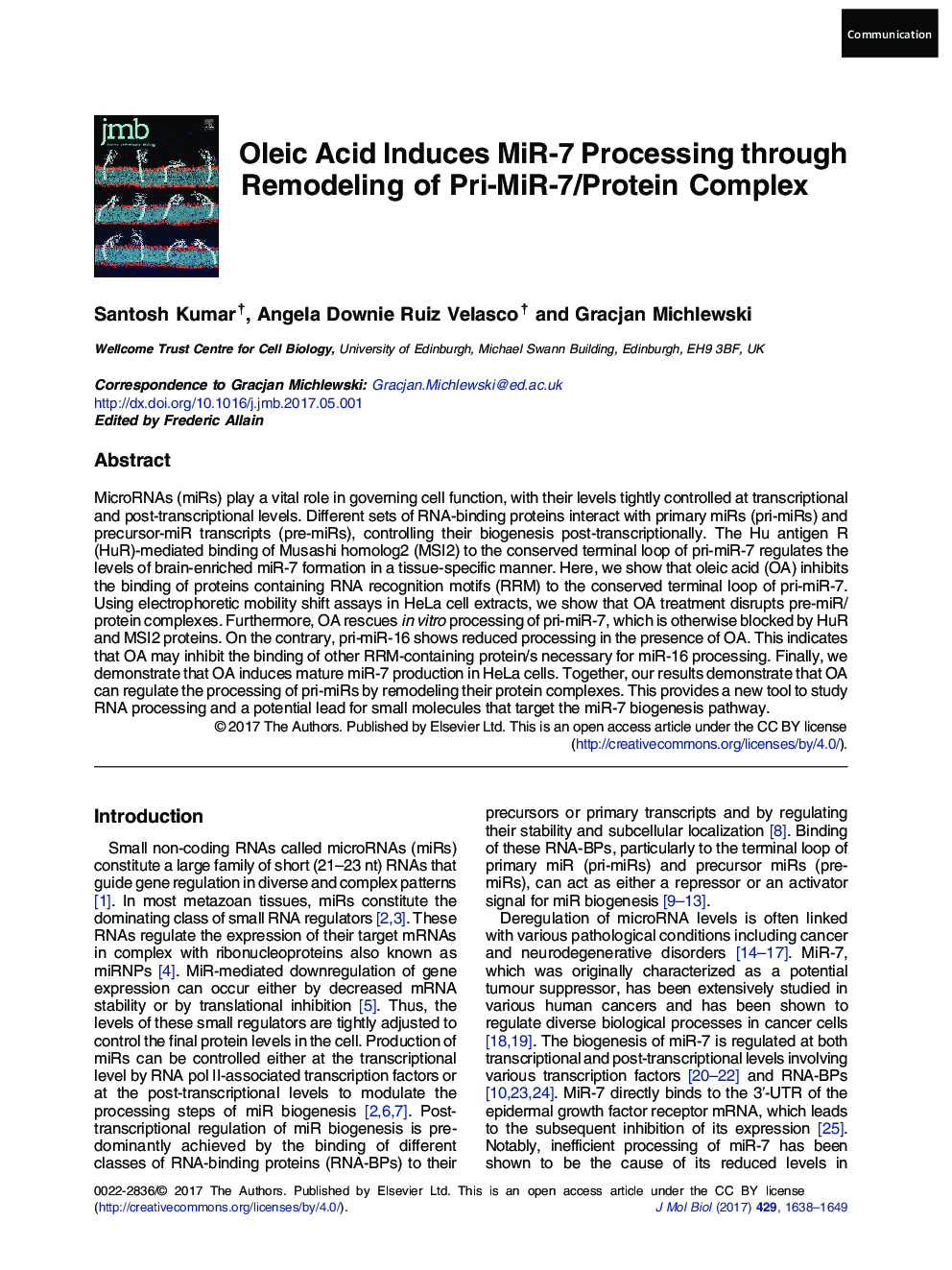| Article ID | Journal | Published Year | Pages | File Type |
|---|---|---|---|---|
| 5533218 | Journal of Molecular Biology | 2017 | 12 Pages |
â¢OA inhibits the binding of proteins containing RRM.â¢OA rescues processing of pri-miR-7 in vitro.â¢OA induces mature miR-7 production in HeLa cells.
MicroRNAs (miRs) play a vital role in governing cell function, with their levels tightly controlled at transcriptional and post-transcriptional levels. Different sets of RNA-binding proteins interact with primary miRs (pri-miRs) and precursor-miR transcripts (pre-miRs), controlling their biogenesis post-transcriptionally. The Hu antigen R (HuR)-mediated binding of Musashi homolog2 (MSI2) to the conserved terminal loop of pri-miR-7 regulates the levels of brain-enriched miR-7 formation in a tissue-specific manner. Here, we show that oleic acid (OA) inhibits the binding of proteins containing RNA recognition motifs (RRM) to the conserved terminal loop of pri-miR-7. Using electrophoretic mobility shift assays in HeLa cell extracts, we show that OA treatment disrupts pre-miR/protein complexes. Furthermore, OA rescues in vitro processing of pri-miR-7, which is otherwise blocked by HuR and MSI2 proteins. On the contrary, pri-miR-16 shows reduced processing in the presence of OA. This indicates that OA may inhibit the binding of other RRM-containing protein/s necessary for miR-16 processing. Finally, we demonstrate that OA induces mature miR-7 production in HeLa cells. Together, our results demonstrate that OA can regulate the processing of pri-miRs by remodeling their protein complexes. This provides a new tool to study RNA processing and a potential lead for small molecules that target the miR-7 biogenesis pathway.
Graphical AbstractDownload high-res image (168KB)Download full-size image
